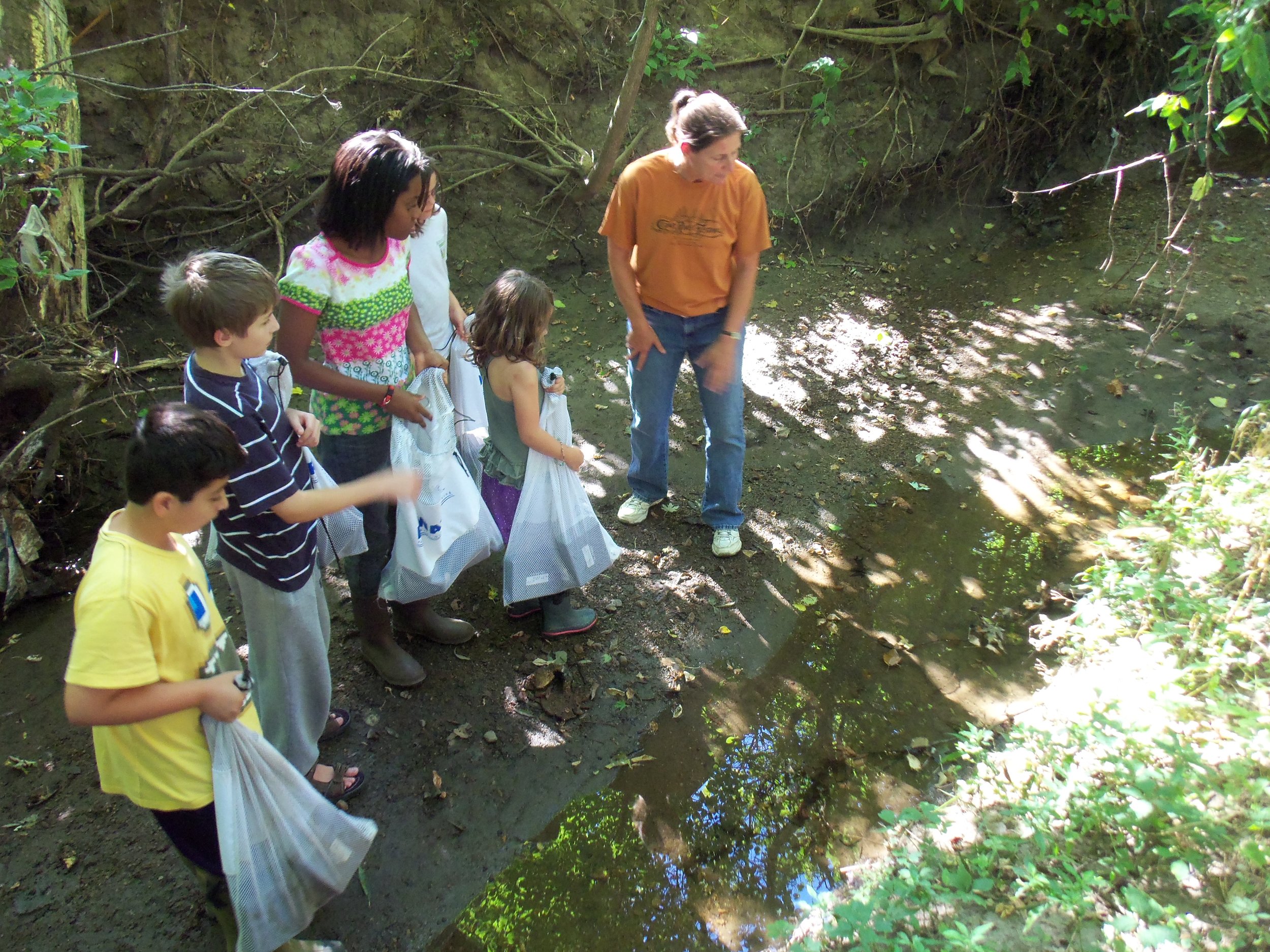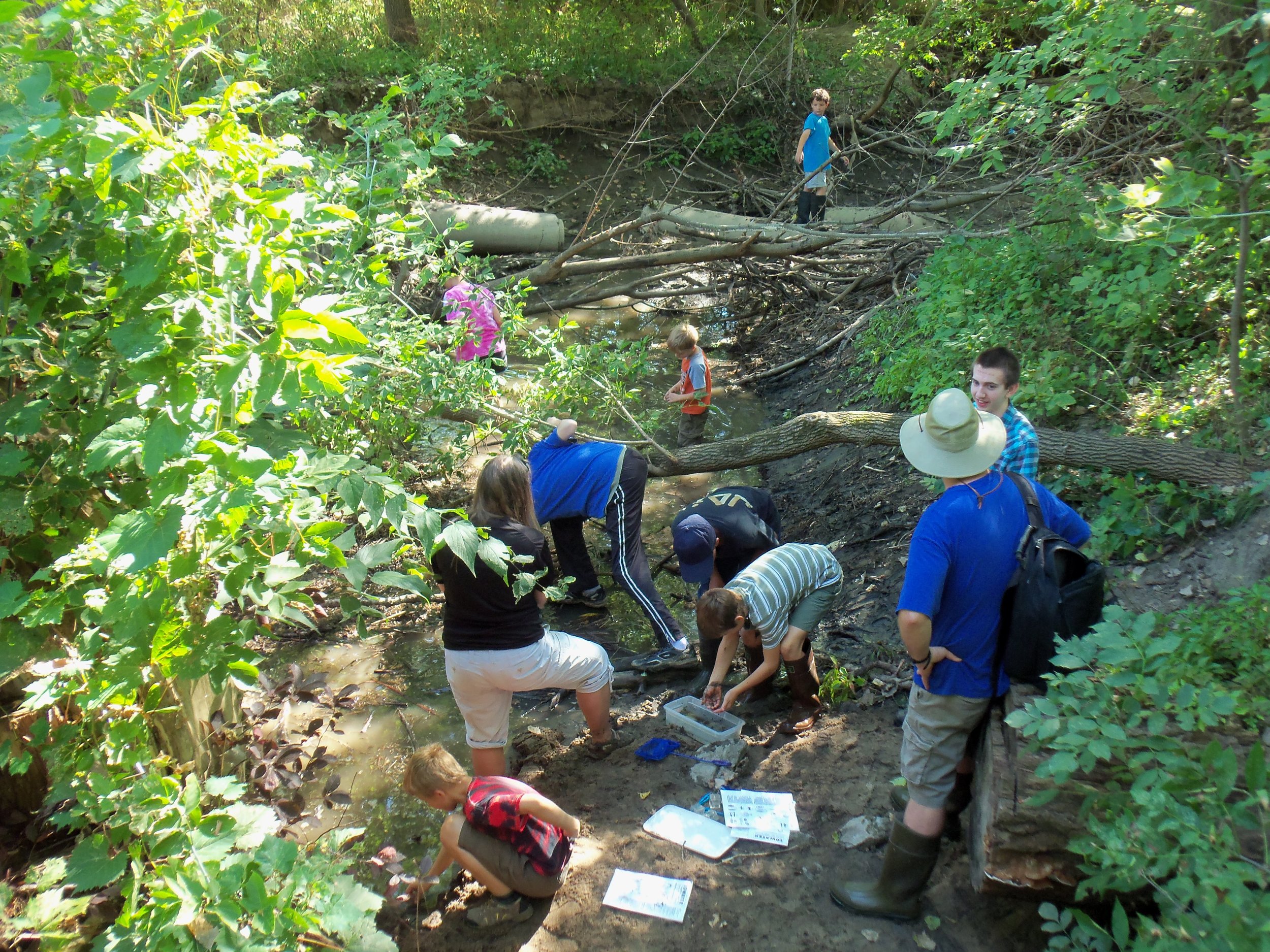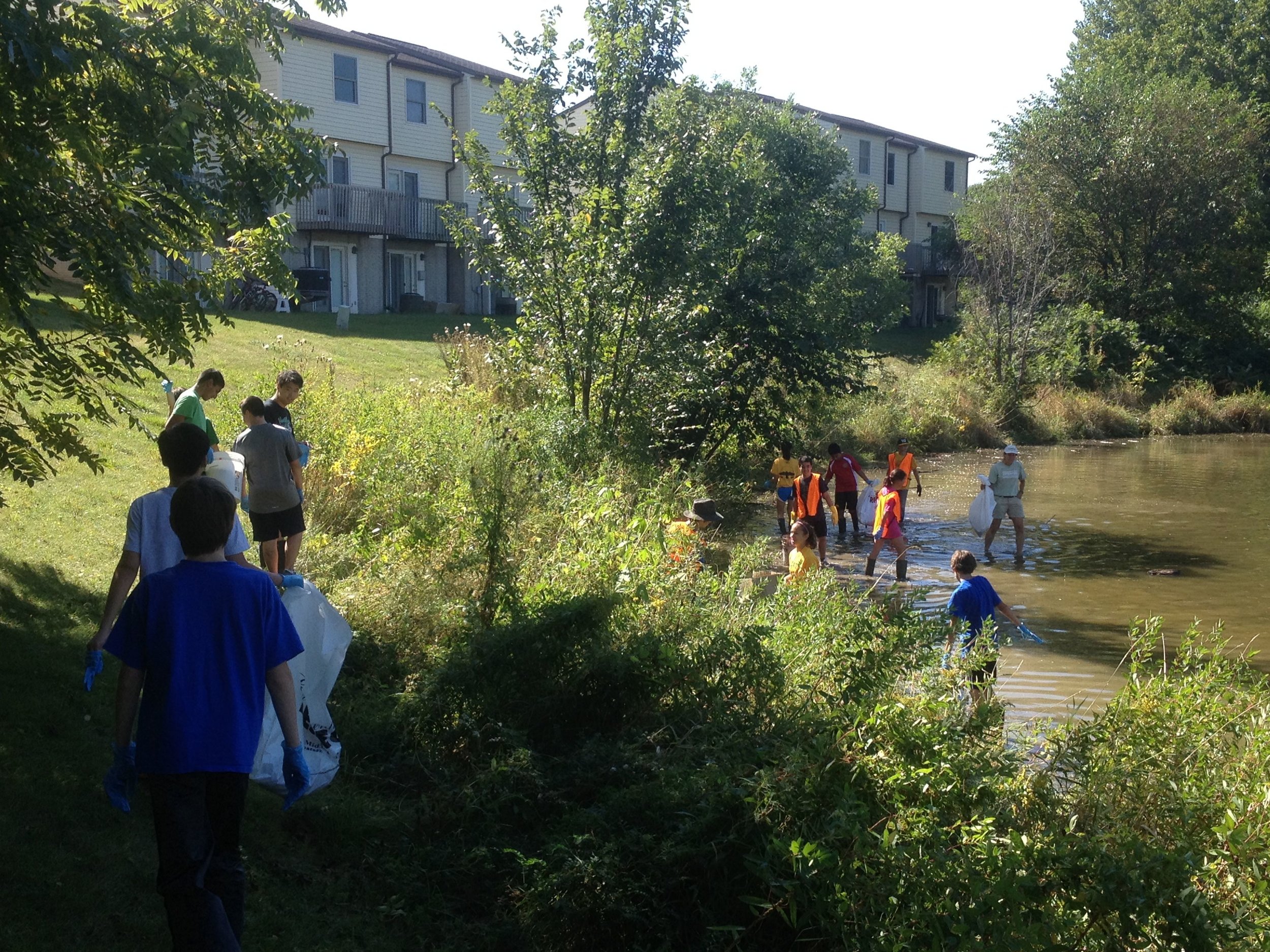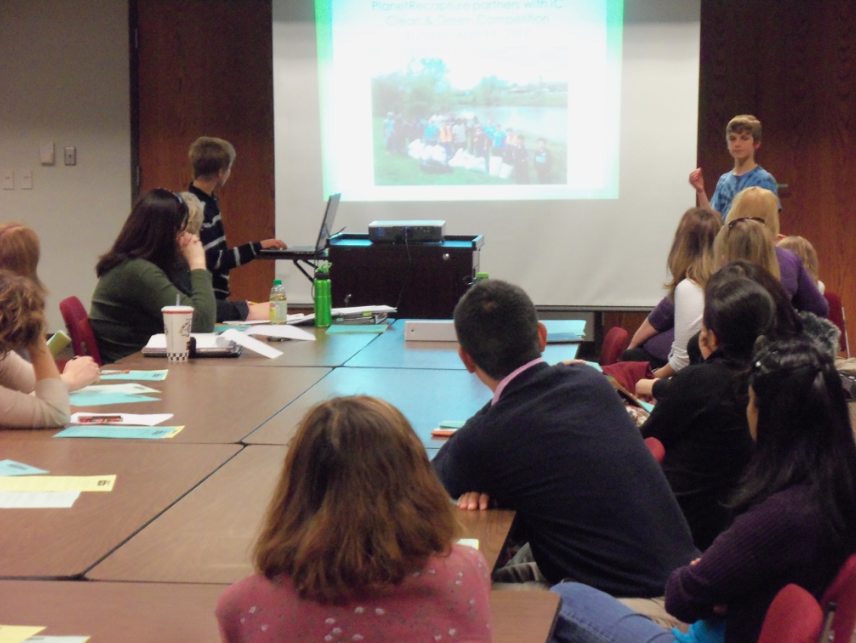Clean Water
PlanetRecapture
SICC team members noticed that every summer, local ponds became carpeted with algae, the pond and shoreline strewn with litter, and stinking with the rotting carcasses of dead fish. The scene made them frustrated enough to do something about it. Team members researched the causes of the problem: phosphate and nitrate runoff from farm fields, lawns, and golf courses.
They recognized the growing need to reduce nitrogen and phosphorus pollution in our water, pollution that not only threatens water quality, but also causes algal blooms that reduce oxygen, kill marine life, and produce toxins that have forced municipal water plants to shut down the water supply for entire cities, like Toledo, Ohio, a metro area of 600,000.
The SICC team members started a social entrepreneurship group called Planet Recapture. They made presentations to kids in area schools, as well as to parents and school administrators at PTA and PTO meetings, advertised and advocated everywhere they could, and soon got hundreds of kids and parents involved from many area schools.
They worked with the Iowa Department of Natural Resources and were trained in the IOWATER program, a citizen science initiative to empower people to conduct water quality testing and monitoring statewide. (There are similar programs in most states, including Ohio’s CLAM program - Citizen Lake Awareness and Monitoring, or the Illinois Riverwatch Network.)
Team members, parents, and community members began to meet on weekends and after school, learned about wildlife and water creatures, causes of pollution and ways to mitigate it, exciting new research, and how to care for our ecosystem, parks, and communities. They began to upload data they collected to the IOWATER database. The program was so successful, the Iowa DNR gave names to the first two ponds that the group adopted, and now they are referred to as “Planet” and “Recapture”.
After water quality testing, kids conducted cleanups, and then played Capture the Flag in area parks and forests. Students, parents, teachers, and community members had a blast, organized picnics, and found out that it’s much more fun to do something meaningful outside than to stay indoors and see the world through screens.
The team also partnered with municipal groups and other area non-profits, like 100 Grannies, who provided the kids mentorship, support, and boundless energy.
Over the span of eight years, SICC team members have worked with environmental scientists at the Iowa, Wisconsin, and Ohio Department of Natural Resources, and with engineers at the University of Iowa, Purdue University, Heidelberg University, the University of Wisconsin, The Ohio State University, and Lehigh University to probe the potential for turning a waste product - zebra and quagga mussel shells and shell sand - into a resource that can sorb phosphate and nitrate pollution from water, as well as improve the composting process. SICC is looking for more teams around the country to get involved in this exciting project and generate new data on improving water quality, soil, and reducing greenhouse gas emissions.
There is significant research to be done, and any team from any community can replicate the Planet Recapture model, start a group in their own area, collaborate with local groups and leading universities and continue to discover ways to improve our water through education, collaboration, and having fun.
Questions and Opportunities for Your Future Team:
What neighborhood, city, county, and state groups can you work with to help educate people about water quality?
How can I work with my science teachers at school to form a Planet Recapture club?
Can I involve my scout troop, sports team, church, mosque or synagogue?
How can I figure out ways to use invasive species or waste products, like zebra or quagga mussel shells, to help keep phosphate and nitrate pollution from reaching waterways?
What are the connections between soil quality and water quality, and how can you develop a project that links water quality improvement with soil improvement, such as composting?








